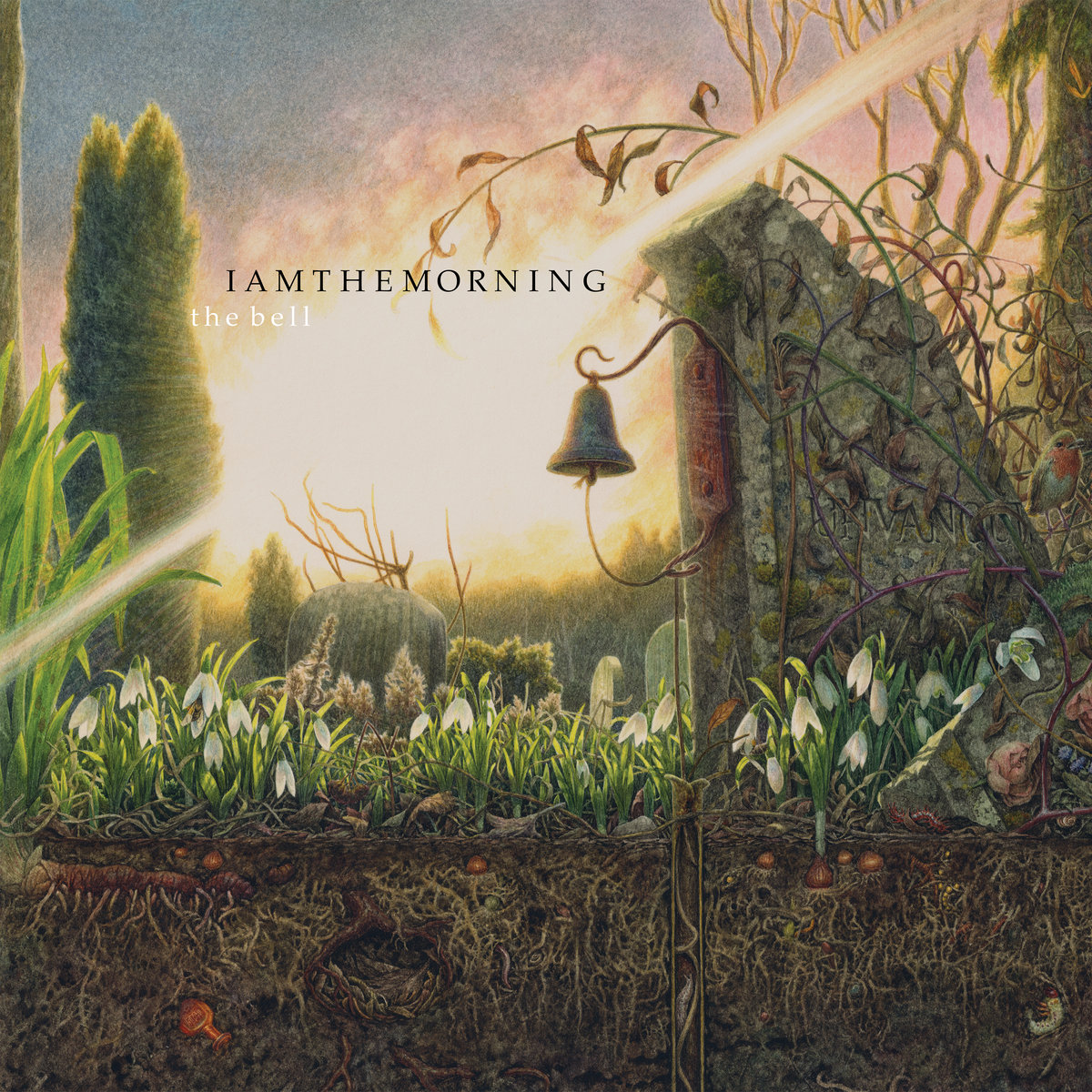
Sad songs are assumed to be sad by definition.
Sadness, though, can mask deeper feelings, maintaining a semblance of composure in the face of self-annihilation.
iamthemorning’s fourth album, The Bell, is more than its description as a song cycle of human cruelty, told through Victorian-inflected lyrics.
Deeper, darker emotions grow from a body of surface-level sadness, creating a moving and incisive study of the nature of pain and its impact on the human psyche.
The music, both in Marjana Semkina’s vocals and Gleb Kolyadin’s classical sensibilities informing the instrumentation, is beautifully melodic even in its most chaotic moments. Semkina creates complex vocal lines in this album, quickly moving between soaring highs and and resonant lows, while still keeping floating lulls that sound gentler than the songs imply. Her style has evolved gradually into a stunning tour de force that remains catchy while defying conventional structure. Semkina deserves credit not just for her vocal work, but as a sophisticated lyricist. She writes deeply disturbing material without being overly graphic or bombastic in nature, instead letting the emotional effects of the story overtake the listener.
The album kicks off with one of its most progressive and epic numbers, “Freak Show”. Sung from the perspective of being a spectacle for others’ amusement, the piece crashes between flamenco-inflected guitar (calling to mind Steve Howe’s guest appearance on the Queen song “Innuendo”), and a klezmer-styled saxophone solo . Like the following song, “Sleeping Beauty”, this song goes between bitterness, to resentment, to erupting in anger, reprising nursery rhymes almost as mantras to reinforce the hurt of each song’s subject. “Sleeping Beauty” is musically much softer, with an arrangement that wouldn’t be out of place on a Marillion ballad from the later 1990s or early 2000s.
“Blue Sea” debuted on Ocean Sounds, and remains a soft, gentle song with painful lyrics. Here, it serves as a sort of break between the first two interconnected songs and the next two, as “Black and Blue” and “Six Feet” also thematically reflect one another, both repeating lyrical motifs of white dresses and burial, bringing back the undercurrent of anger in the music. The softness of Semkina’s vocals almost hides the venom in a lowly-sung question: “Should I thank you?”
“Six Feet” is told from both sides of its dark narrative: a woman buried alive by her husband. In material, it calls to mind Steven Wilson’s song “The Pin Drop”, and would be terrifyingly beautiful if performed as a duet.
The second part of the cycle begins with “Ghost of a Story”, where Kolyadin’s piano shimmers like sunlight on water as Semkina gives voice to the feeling of soul-crushing emotional numbness. “Everything has its boundaries, including your grief.”
“Song of Psyche” follows in a similarly calm melody to obliquely depict self-destruction. In this retelling of Psyche’s descent into the Underworld, she won’t make it back, and if the descent is for the human psyche rather than the mythical, it too ends unhappily.
“Lilies” is the most explicitly classical song, its Schubertian piano calling to mind a rushing, rippling river that overtakes Semkina’s Ophelia-like vocals. It’s interesting to note that the middle songs of both halves of the album tell stories of drowning that counteract the emotions around the other pieces: “Blue Sea” is more resigned amidst stories of anger and resentment, while “Lilies” comes across as more anguished and almost panicked amidst songs where the subjects’ pain is more tied in with resignation that the pain cannot and will not disappear unless they do.
“Salute” melds the epic nature of “Freak Show”, the relationship narratives of “Black and Blue” and “Six Feet”, and the carnival-esque measures of “Matches” from the previous album Lighthouse. As a song cavalierly describing how the narrator will be destroyed by the subject for defying them, the hopelessness masked as passive-aggression is catchy and captivating.
The finale and title track, “The Bell”, is a soft but appropriate finale. Lyrically, this song is the only one that sounds resigned but hopeful, almost contented in death to escape a lifetime of pain. As a resolution, it answers that if the causes of human suffering are not mitigated or reduced, the only way to end the suffering is to end the sufferer.
This album is neither light nor easy listening, for its journey through suffering. If that doesn’t faze people, it’s a skillfully composed, breathtaking experience.
And if listeners identify with the pain in the lyrics, it’s a strangely comforting work for hearing the darkest recesses of emotion brought to light.
Rating: 10/10
Tracklist:
- Freak Show
- Sleeping Beauty
- Blue Sea
- Black and Blue
- Six Feet
- Ghost of a Story
- Song of Psyche
- Lilies
- Salute
- The Bell
Label: Kscope
Release Date: 2 August 2019
Bandcamp: https://iamthemorningband.bandcamp.com
Facebook: https://www.facebook.com/iamthemorningpage

I really love this album, even more than the last, which is saying alot. I n particular, I can’t get enough of “Sleeping Beauty”. Something about that song just hits me in all the sweet spots…
LikeLike